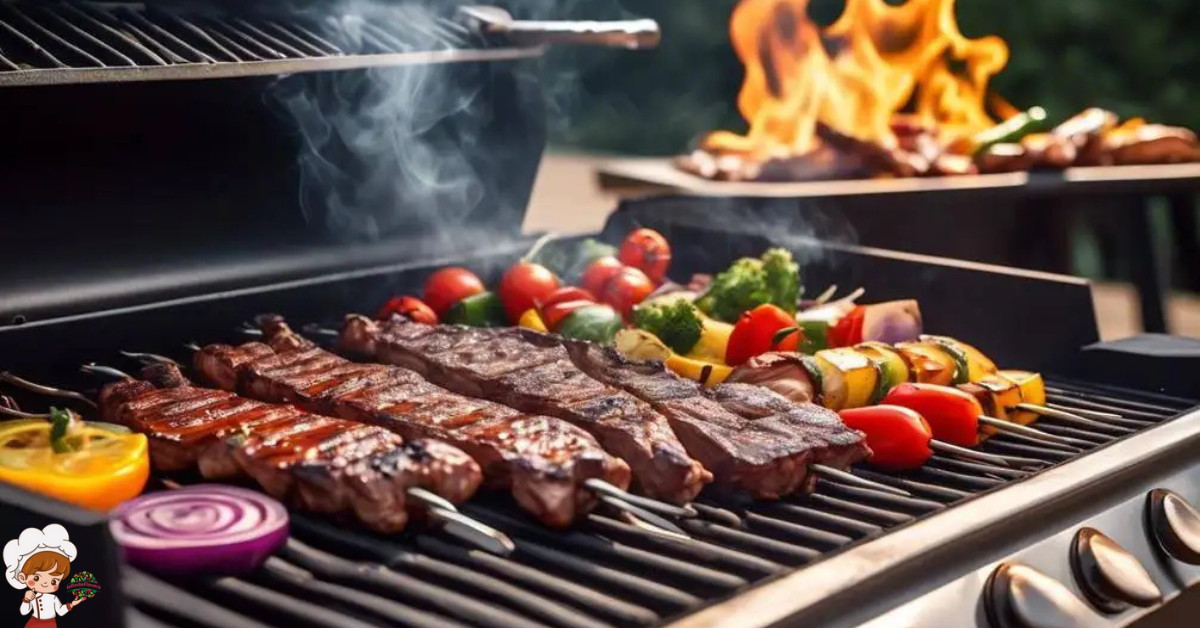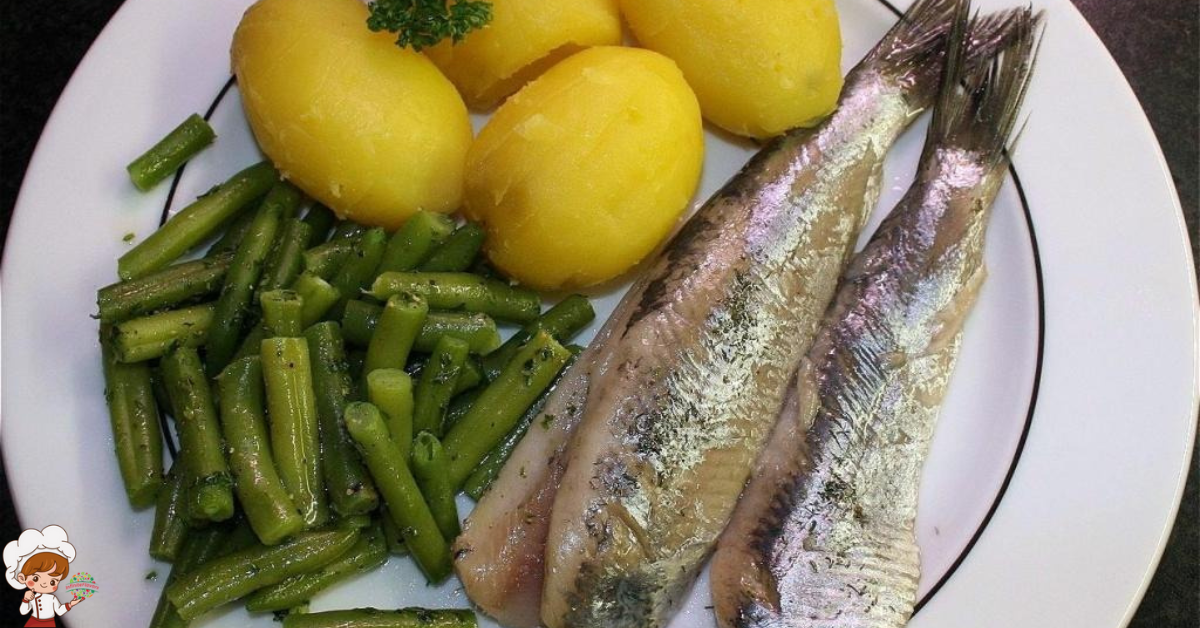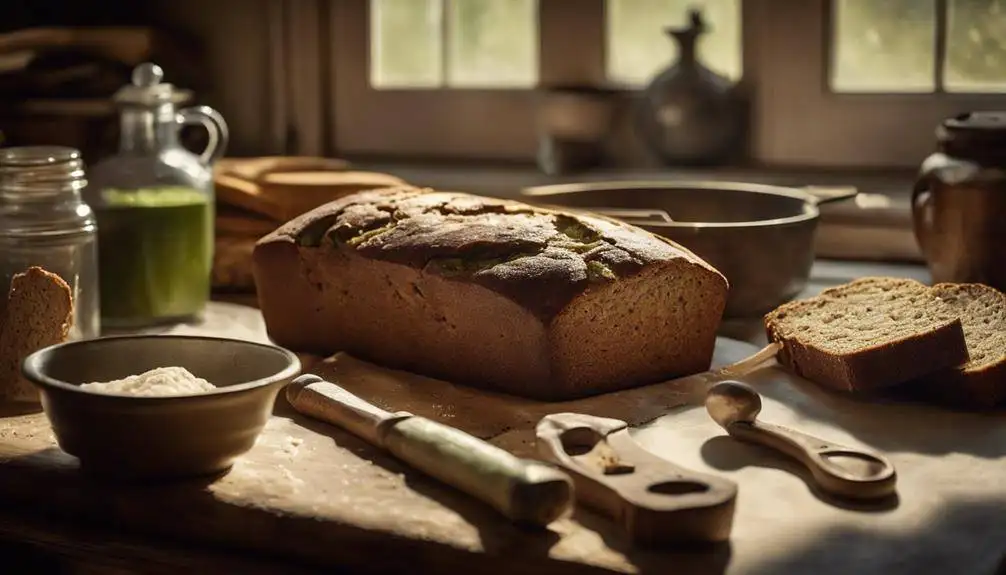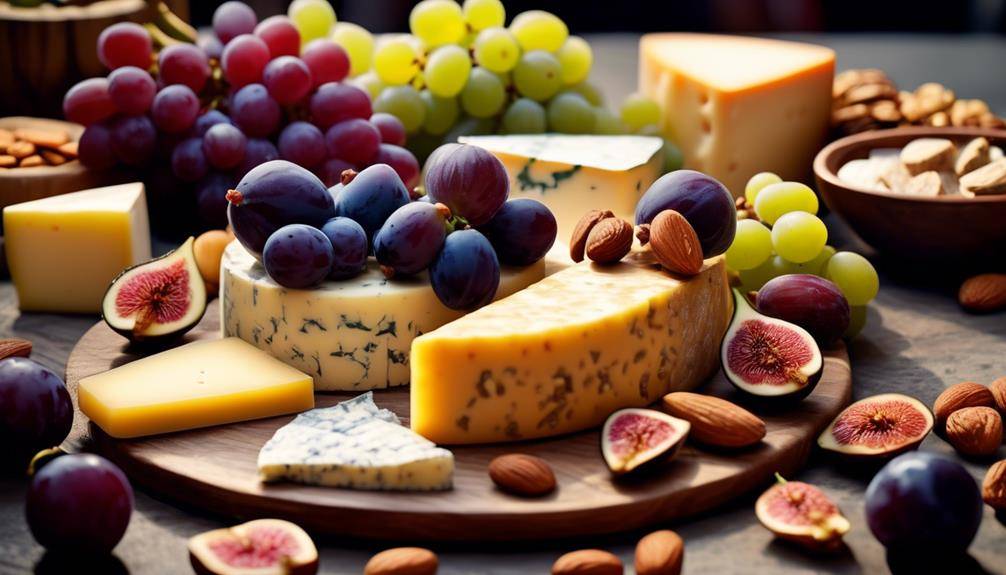Important Tips for Maintaining Your Barbecue Grill’s Lifespan

Maintaining Your Barbecue Grill’s Lifespan; Did you know that the average lifespan of a well-maintained barbecue grill is around 10 to 15 years? That’s right, by taking proper care of your grill, you can ensure many years of delicious outdoor cooking. But how exactly do you maintain your barbecue grill’s lifespan? In this discussion, we will explore some essential tips and techniques that will help you keep your grill in top-notch condition. From regular cleaning and maintenance to protecting against rust and corrosion, we’ve got you covered. So, if you want to extend the life of your grill and continue enjoying those mouthwatering barbecued meals, keep on reading.
Regular Cleaning and Maintenance
To ensure the longevity and optimal performance of your barbecue grill, regular cleaning and maintenance are essential. Neglecting these tasks can lead to a buildup of grease, food residue, and other debris, which can not only affect the taste of your food but also pose a fire hazard. To keep your grill in top shape, here are some grill maintenance tips and cleaning hacks.
Firstly, it is crucial to clean your grill thoroughly after each use. Start by brushing the grates with a wire brush to remove any leftover food particles. For stubborn residue, you can soak the grates in warm soapy water for a few minutes before scrubbing them clean.
Next, pay attention to the burners and the burner tubes. These components can become clogged with grease and other debris over time, affecting the grill’s performance. To clean them, turn off the gas supply and disconnect the propane tank. Remove the burners and scrub them with a wire brush. Use a pipe cleaner or a small brush to clean the burner tubes, ensuring they are clear of any obstructions.
Additionally, don’t forget to clean the exterior of your grill. Use a mild detergent and warm soapy water to clean the surface, and then rinse it thoroughly. For stainless steel grills, you can use stainless steel cleaner to remove any smudges or fingerprints.
Regular cleaning and maintenance of your barbecue grill will not only prolong its lifespan but also ensure that it performs optimally every time you use it. By following these grill maintenance tips and cleaning hacks, you can enjoy delicious meals with friends and family for years to come.
Proper Storage During Off-Season
After ensuring that your barbecue grill is thoroughly cleaned and maintained, the next crucial step is to properly store it during the off-season. Proper storage not only protects your grill from the elements but also extends its lifespan. There are various outdoor storage options available to keep your grill safe and secure during the winter months.
One option is to use a grill cover specifically designed for your grill model. These covers are made from durable materials that offer protection against rain, snow, and UV rays. When selecting a cover, ensure that it fits snugly over your grill and has features like Velcro straps or drawstrings to keep it in place during strong winds.
Another option is to store your grill in a shed or garage. This provides additional protection from the elements and keeps your grill out of sight. If you choose this option, make sure the storage area is clean and dry before placing your grill inside. It’s also a good idea to cover your grill with a grill cover even when stored indoors to prevent dust and debris from accumulating.
Before storing your grill, it’s important to winterize it. Start by removing any remaining propane tanks and storing them in a safe and well-ventilated area. Clean the grates and burners thoroughly to remove any grease or food residue. Apply a thin coat of cooking oil to the grates to prevent rusting. Lastly, inspect the grill for any signs of wear and tear and make any necessary repairs before storing it away.
Checking and Replacing Grill Parts
Inspecting and replacing grill parts is an essential maintenance task to ensure the optimal performance and longevity of your barbecue grill. Regularly checking and maintaining your grill parts will help prevent any potential issues and keep your grill functioning at its best. Here are some grill maintenance and troubleshooting tips to help you with this task.
First, start by inspecting the burners. Check for any clogs or damage that may affect the flame distribution. Clean the burners with a wire brush to remove any debris or grease buildup. If you notice any significant damage, it is advisable to replace the burners to maintain optimal heat distribution.
Next, examine the cooking grates. These grates endure high temperatures and constant exposure to grease and food particles, which can lead to rust and deterioration over time. Clean the grates thoroughly using a grill brush and warm soapy water. If the grates are severely rusted or damaged, consider replacing them to ensure even cooking and prevent contamination.
Don’t forget to inspect the ignition system. Check for any loose wires, corrosion, or worn-out components. Clean the ignition electrodes with a soft brush or cloth to remove any dirt or debris. Replace any faulty ignition parts to ensure reliable ignition every time you use your grill.
Lastly, check the gas hoses and connections. Look for any cracks, leaks, or loose fittings. Apply a soapy water solution to the connections and watch for any bubbles, which indicate a gas leak. If you detect any leaks or damaged hoses, replace them immediately to prevent any safety hazards.
Protecting Against Rust and Corrosion
To protect your barbecue grill against rust and corrosion, it is crucial to implement proper maintenance techniques and use protective measures. Rust prevention is essential to extend the lifespan of your grill and ensure optimal performance. One effective way to prevent rust is by using grill covers.
Grill covers are designed to shield your barbecue grill from the elements, including rain, snow, and UV rays. These covers act as a barrier, preventing moisture from coming into direct contact with the metal surfaces of the grill. Moisture is one of the main culprits behind rust formation, so keeping your grill dry is essential.
When selecting a grill cover, it is important to choose one that is made from durable and waterproof materials. Look for covers that are specifically designed for outdoor use and can withstand harsh weather conditions. Additionally, ensure that the cover fits snugly over your grill, providing full coverage and protection.
To effectively use a grill cover for rust prevention, it is recommended to clean and dry your grill thoroughly before covering it. This helps to remove any existing moisture and dirt that may contribute to rust formation. Once your grill is clean and dry, simply place the cover over it, ensuring that it is securely fastened. Regularly check the cover for any signs of wear and tear and replace it if necessary.
Maintaining Proper Gas or Charcoal Usage
Now that you have taken the necessary steps to protect your barbecue grill against rust and corrosion, it is important to focus on maintaining proper gas or charcoal usage to ensure optimal performance and longevity. Proper grill maintenance is essential for both gas and charcoal grills, as it not only improves the cooking experience but also extends the lifespan of your grill.
When it comes to the gas vs charcoal debate, each type of grill has its advantages and maintenance requirements. For gas grills, regular cleaning is crucial to prevent blockages and ensure efficient fuel flow. Start by removing the grates and burners, then use a wire brush to scrub away any debris or grease buildup. Be sure to check the gas lines for leaks or cracks and replace them if necessary.
For charcoal grills, proper ash disposal is a key aspect of maintenance. After each use, allow the ashes to cool completely before removing them. Dispose of the ashes in a metal container, as they can remain hot for hours and pose a fire hazard. Additionally, clean the grates thoroughly to remove any leftover charred residue.
Regardless of the type of grill you own, it is important to monitor the fuel levels. For gas grills, always have a spare propane tank on hand to avoid interruptions during cooking. For charcoal grills, ensure you have enough briquettes or lump charcoal for the duration of your cooking session.
Cleaning the Grill Grates and Burners
To maintain your barbecue grill, it is crucial to regularly clean the grill grates and burners. Proper grate maintenance includes removing any food residue and grease buildup, as well as checking for rust or corrosion. For cleaning the burners, you can use a wire brush or a grill brush to remove debris and ensure proper gas flow. By taking these cleaning steps, you can prevent flare-ups, prolong the lifespan of your grill, and ensure optimal grilling performance.
Grate Maintenance Tips
For effective maintenance of your barbecue grill, ensure that the grill grates and burners are properly cleaned and maintained. Cleaning the grill grates is essential to prevent the buildup of grease and food residue, which can affect the taste and quality of your grilled food. To remove grease buildup, start by preheating the grill and then using a wire brush to scrub the grates thoroughly.
Make sure to clean both the top and bottom surfaces of the grates. For stubborn grease, you can use a grill cleaner or a mixture of baking soda and water. After cleaning, rinse the grates with water and dry them thoroughly before using the grill again. Regularly cleaning and maintaining your grill grates will not only extend their lifespan but also ensure optimal grilling performance.
Burner Cleaning Techniques
To ensure the optimal performance of your barbecue grill, it is crucial to regularly clean and maintain both the grill grates and burners. Burner maintenance is an essential part of keeping your grill in top shape. Over time, burners can become clogged with debris, causing uneven heat distribution and inefficient cooking. To deep clean your burners, start by turning off the gas supply and disconnecting the propane tank.
Remove the burners from the grill and inspect them for any signs of damage or corrosion. Use a wire brush or a grill brush to scrub away any built-up grease and debris. For stubborn residue, you can soak the burners in warm, soapy water and scrub them again. Rinse thoroughly and allow them to dry completely before reinstalling them in your grill. Regularly cleaning and maintaining your burners will extend their lifespan and ensure consistent heat distribution for delicious grilling results.
Preventing Rust and Corrosion
To prevent rust and corrosion on your grill grates and burners, regular cleaning and maintenance are crucial for preserving their lifespan and ensuring optimal performance. Preventing moisture damage is key in this process. After each use, make sure to clean the grill grates thoroughly to remove any food residue or grease buildup. Use a wire brush to scrub off any stuck-on debris and then rinse with warm soapy water.
Dry the grates completely to prevent moisture from accumulating and causing corrosion. Additionally, it is important to select the right grill cover to protect your grill from the elements. Choose a cover made from durable and waterproof material that fits your grill snugly. This will help prevent moisture from seeping in and causing rust or corrosion. Proper cleaning and the right cover will go a long way in preserving the lifespan of your grill grates and burners.
Regularly Inspecting for Any Potential Issues
Regularly inspect your barbecue grill for any potential issues to ensure optimal performance and safety. Conducting routine inspections is an essential part of grill maintenance and can help you identify and address any problems before they escalate. By following a few safety precautions and being aware of common issues, you can keep your grill in top shape for years to come.
Start by checking the propane or gas connections. Inspect the hoses and valves for any signs of wear or damage. Look for cracks, leaks, or loose connections. If you detect any issues, replace or tighten the affected parts immediately. Additionally, examine the burner tubes for blockages. Debris or insects can clog the tubes, leading to uneven heat distribution and potential safety hazards.
Next, inspect the grill grates for signs of wear and tear. Over time, grates can become corroded or develop rust. Use a wire brush to remove any loose debris and inspect the grates for any signs of damage. If you notice significant rust or deterioration, consider replacing the grates to ensure safe and hygienic cooking.
Inspect the ignition system to ensure it is functioning properly. Check for any loose wires, damaged electrodes, or clogged burner ports. A malfunctioning ignition system can lead to difficulty in lighting the grill, posing a safety risk. If you encounter any issues, consult the manufacturer’s manual or contact a professional for assistance.
Maintaining Your Barbecue Grill’s Lifespan; Frequently Asked Questions
How Often Should I Clean My Barbecue Grill?
You should clean your barbecue grill regularly to ensure its optimal performance. Use effective cleaning techniques to remove grease, residue, and food particles. This will help maintain the lifespan of your grill.
Can I Leave My Barbecue Grill Outside During the Winter?
You can leave your barbecue grill outside during the winter, but it is recommended to store it properly. Consider using a grill cover to protect it from harsh weather conditions and extend its lifespan.
How Do I Know When It’s Time to Replace Certain Grill Parts?
To know when it’s time to replace certain grill parts and extend your grill’s lifespan, inspect the condition of the grill grates regularly. Look for signs of rust, corrosion, or excessive wear. If they are damaged beyond repair, it’s time for replacements.
What Can I Do to Prevent Rust and Corrosion on My Grill?
To prevent rust and corrosion on your grill, it is crucial to practice proper cleaning and regular maintenance. By keeping your grill clean and inspecting it regularly, you can ensure its longevity and prevent damage.
Are There Any Specific Guidelines for Using Gas or Charcoal on My Barbecue Grill?
When it comes to the gas vs. charcoal debate, there are pros and cons to consider. Gas grills offer convenience and temperature control, while charcoal grills provide a smokier flavor. Different meats require different grilling techniques for optimal results.
Conclusion
In conclusion, maintaining the lifespan of your barbecue grill requires regular cleaning and maintenance, proper storage during the off-season, and checking and replacing grill parts as needed. It is also important to protect against rust and corrosion, use gas or charcoal properly, and regularly clean the grill grates and burners. By regularly inspecting for any potential issues, you can ensure that your grill remains in optimal condition for years to come.








